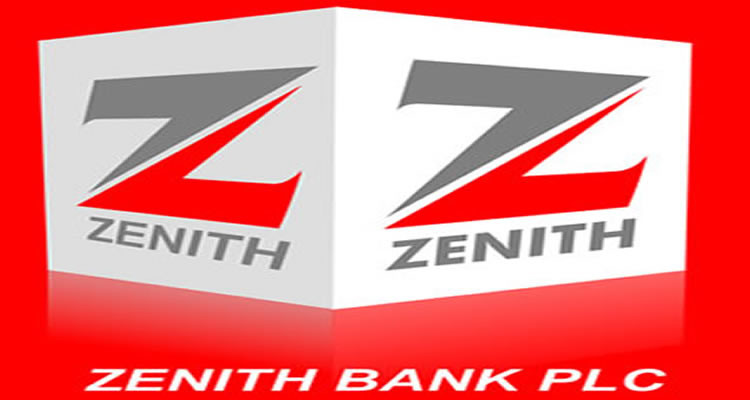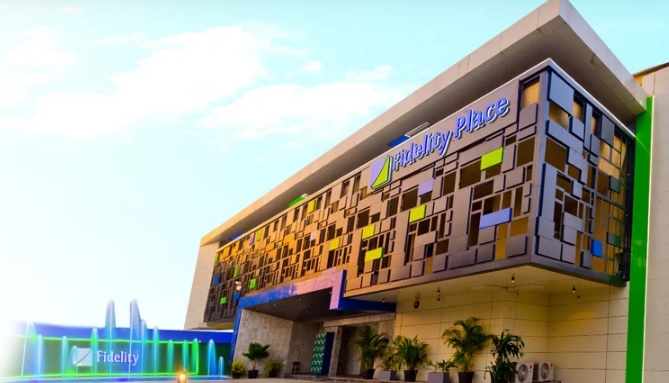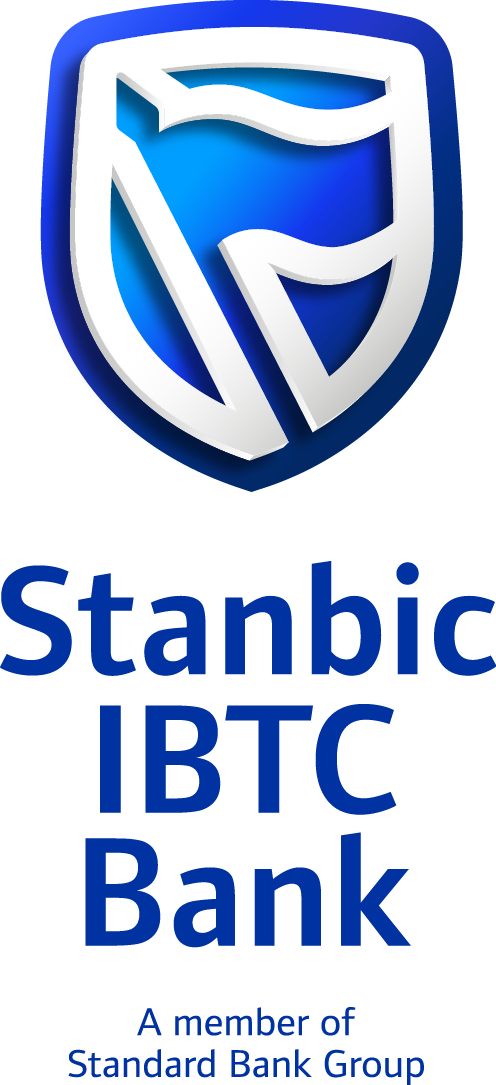Business
Another building collapse rocks Akwa Ibom, Kills two, injures many
Published
7 years agoon

Two market women have died and 17 injured in a collapsed wall of Urua (market) Ederebo in Ikot Akpatek in Onna Local Government Area of Akwa Ibom State, hometown of the state governor, Mr. Udom Emmanuel.
An eyewitness, Mr. Edet Jack, said on Monday that the injured victims of the collapsed market wall were moved to Immanuel General Hospital, Eket for medical attention, while the two women that died had been removed from the area.
He added that some victims who were thought to have also died in the incident, were revived on arrival at the hospital.
Our correspondent learnt that some sections of the 60 years old market was renovated three years ago by government.
The Commsissioner for Works, Mr. Ephraim Inyangeyen, who led an emergency rescue team to the scene of the incident denied that no life was lost during the incident, he therefore charged people to stop spreading sensational news reports that are not verifiable.
Although the casualties and injured were immediately removed by Inyangeyen, an eyewitness strongly opposed denial by the commissioner that no life was lost in the incident.
“I do not understand what government hopes to gain by playing down or denying figures of victims of disaster in the state. Last week, the government was busy lying to defend a church whose building collapsed and killed over 100 people due to very glaring technical error.
“Today again, the government team arrived as soon as the incident occured, and instead of going to Immanuel General Hospital to ascertain if the weak facility can handle the situation, the commissioner turned himself into a journalist to throw intimidating questions at the timid villagers to cover up the situation,” the eyewitness said.
Reacting to the incident, the Police Public Relations in the state, Cordelia Nwawe, confirmed that only two women died following an old market wall that fell directly on them.
“Only two women died, there is an an old wall that fell directly on them so they died, normal market business is ongoing,” she said.
Meanwhile, worried by the alarming rate of collapsed structures in the country, the Nigerian Institute of Town Planners, has called on the state government to ensure the domestication of the 1992 Urban and Regional Planning Law.
Acting Chairman, Dr. Beulah Ofem, in a press conference in Uyo on Monday, stated that such law, when domesticated would go a long way to aid effective management of physical development of the state
Related
Sahara weekly online is published by First Sahara weekly international. contact saharaweekly@yahoo.com

You may like
Business
ZENITH BANK NAMED MOST SUSTAINABLE BANK IN NIGERIA IN THE INTERNATIONAL BANKER AWARDS 2024 FOR THE SECOND CONSECUTIVE YEAR
Published
20 hours agoon
June 3, 2024
Zenith Bank Plc has been named the “Most Sustainable Bank, Nigeria” in the International
Banker 2024 Banking Awards, retaining the title for the second consecutive year.
Commenting on the award, the Group Managing Director/Chief Executive Officer of Zenith
Bank, Dame (Dr.) Adaora Umeoji, OON, said: “We are deeply honoured to be recognised as
the Most Sustainable Bank in Nigeria for the second time in a row. This prestigious award
underscores our steadfast commitment to sustainability and reinforces our belief that
responsible banking is essential for long-term success and societal impact.”
She dedicated the award to the Founder and Chairman of Zenith Bank Plc, Dr. Jim Ovia,
CFR. She lauded the Bank’s stakeholders for their commitment and unwavering support in
ensuring that Zenith remains a highly successful institution. She said, “This remarkable
achievement is a testament to the visionary and impactful leadership of our Founder and
Chairman, Dr. Jim Ovia, CFR. His exceptional foresight and dedication have been the
cornerstone of our success. His ability to inspire and guide with strategic acumen has been
instrumental in steering Zenith Bank to new heights. Along with the strategic guidance of our
esteemed Board members, the unwavering commitment of our ever-diligent staff, and the
steadfast support of our loyal customers, Dr. Ovia’s leadership has been pivotal in
transforming our sustainability initiatives into a reality. We owe this success to his relentless
pursuit of excellence and his deep-seated commitment to redefining the banking landscape
in Nigeria.”
This recognition reaffirms Zenith Bank’s position as a trailblazer in sustainable banking
practices, setting a benchmark for excellence within the Nigerian banking industry and
beyond. The Bank has been a leader in monitoring and reporting sustainability impact.
Since becoming the first Bank in Africa to publish a stand-alone sustainability report in
accordance with the GRI Standards: Core Option in 2016, Zenith Bank has consistently
published assured stand-alone sustainability reports. The Bank is one of the few institutions
in Nigeria that tracks its carbon emissions using a certified tool built on the internationally
recognised Greenhouse Gas (GHG) Protocol.
Zenith Bank is deeply committed to environmental, social, and governance (ESG) values,
subscribing to the Triple Bottom Line principle, which encompasses People, Planet, and
Profit. As a leading financial institution that services various sectors of the economy, the
Bank considers Environmental and Social (E&S) risk management critical to its
sustainability strategy.
Zenith Bank’s track record of excellent performance has continued to earn the brand
numerous awards, including being recognised as Best Bank in Nigeria for the fourth time in
five years, from 2020 to 2022 and in 2024, in the Global Finance World’s Best Banks
Awards; the Best Bank for Digital Solutions in Nigeria in the Euromoney Awards 2023; being
listed in the World Finance Top 100 Global Companies in 2023; being recognised as the
Number One Bank in Nigeria by Tier-1 Capital for the 14th consecutive year in the 2023 Top
1000 World Banks Ranking published by The Banker Magazine; Best Commercial Bank,
Nigeria, for three consecutive years from 2021 to 2023 in the World Finance Banking
Awards; Best Corporate Governance Bank, Nigeria in the World Finance Corporate
Governance Awards 2022 and 2023; Bank of the Year (Nigeria) in The Banker’s Bank of the
Year Awards 2020 and 2022; Best in Corporate Governance Financial Services Africa for
four successive years from 2020 to 2023 by the Ethical Boardroom; Most Sustainable Bank,
Nigeria in the International Banker 2023 Banking Awards; Best Commercial Bank, Nigeria
and Best Innovation in Retail Banking, Nigeria in the International Banker 2022 Banking
Awards.
Additionally, the Bank emerged as the Most Valuable Banking Brand in Nigeria in the
Banker Magazine Top 500 Banking Brands 2020 and 2021; Bank of the Year 2023 and
Retail Bank of the Year for three consecutive years from 2020 to 2022 at the BusinessDay
Banks and Other Financial Institutions (BAFI) Awards. Similarly, Zenith Bank was named
Bank of the Decade (People’s Choice) at the ThisDay Awards 2020, Bank of the Year 2021
by Champion Newspaper, Bank of the Year 2022 by New Telegraph Newspaper, and Most
Responsible Organisation in Africa 2021 by SERAS.
Published by Finance Publishing Limited, the International Banker Magazine, United
Kingdom, is a leading global source of authoritative analysis and opinion on banking,
finance and world affairs. Its influence, integrity, accuracy and objective opinion have
earned it global recognition. The International Banker Awards strive to recognise the most
worthy financial institutions around the world – those not just doing their jobs well but
exceptionally well – those operating at the industry’s cutting edge and setting new
performance levels to which others will aspire. The 2024 Banking Awards focused on
various criteria, including the provision of much-needed capital for economic growth, cutting-
edge innovation to enhance security and efficiency, commitment to sustainability and ESG
principles, as well as intelligent investing to maximise profits and shareholder value.
Related
Business
Fidelity Bank outperforms banks, stock market with 507% gain in 5 years
Published
1 day agoon
June 3, 2024
Investors in Fidelity Bank Plc have earned more than 507 per cent in capital gains over the past five years, ranking above all other major return benchmarks at the Nigerian stock market and the entire banking sector.
Trading reports at the Nigerian stock market for the five-year period between May 31, 2019 and May 31, 2024 showed that Fidelity Bank outperformed all key indices at the stock market.
Fidelity Banks share price rose by 507.14 per cent over the period, representing average annual capital gain of 101.43 per cent.
These returns underscore Fidelity Banks immense value as a stock for all times, helping investors to hedge against inflation while preserving significant long-term value.
With 507 per cent capital gain in five years and average annual gain of more than 100 per cent, the return analysis implies that investment in Fidelity Bank is more attractive than other class of assets, including fixed-income securities such as government and corporate bonds; real estate investment and mutual funds among others.
The high divisible nature of shares investment and high free float of Fidelity Bank, which makes the banks shares easily available, underline the bank as a most attractive investment option for all cadres of investors- small, medium and high networth; retail and institutional investors.
Comparative analysis showed that Fidelity Bank outperformed all other major market indices with the banks average annual return for the period twice the average return by the overall market and almost four times of average return in the banking sector.
The All Share Index (ASI) – the common, value-based index that tracks all share prices at the Nigerian Exchange (NGX), which is widely regarded as Nigerias benchmark for equities market, recorded a five-year return of 219.61 per cent, an average annual return of 43.9 per cent.
Contrary to the significantly above average performance of Fidelity Bank, the NGX Banking Index-which tracks the banking sector, doubled by 120.53 per cent over the five-year period, representing average annual return of 24.11 per cent, more than 77 percentage points below Fidelity Banks average return.
Two other major price indices- the NGX 30 Index and NGX Main Board Index, recorded five-year cumulative return of 185.73 per cent and 265.6 per cent respectively, representing average annual gain of 37.15 per cent and 53.1 per cent respectively.
The NGX 30 Index tracks share prices of the 30 largest companies at the stock market while the NGX Main Board Index represents the largest and most diversified group of listed companies at the stock exchange. Fidelity Bank is quoted on the main board, like most other major banks and companies at the stock market.
The average annual return of 101.43 per cent underlines that Fidelity Bank provides substantial return for investors, even where such investors had borrowed money at the ruling interest rate and the invested fund was adjusted for impact of inflation rate.
Nigerias inflation rate peaked at a high of 33.69 per cent in April 2024 while the Central Bank of Nigeria (CBN)s Monetary Policy Committee (MPC) recently increased the Monetary Policy Rate (MPR), otherwise known as benchmark interest rate, to 26.25 per cent.
Fidelity Banks share price, which closed May 31, 2019 at N1.68 per share, rose successively to N10.20 per share by the end of May 2024. The ASI had, during the period, rose from its opening index of 31,069.37 points to close weekend at 99,300.38 points. The NGX Banking Index rose from 361.57 points to 797.37 points. The NGX 30 Index, which opened the period at 1,286.68 points, closed the period at 3,676.44 points. The NGX Main Board Index appreciated from 1,267.54 points to close weekend at 4,634.31 points.
Market analysts are unanimous that share prices are illustrative of the fundamental values of quoted companies.
Managing Director, HighCap Securities Limited, Mr. David Adonri, said the price of any stock in the market is a correct reflection of the market value for the stock.
Managing Director, Globalview Capital Limited, Mr. Aruna Kebira, explained that the market price of a stock represents the disposition of the investing public to the stock at a given period, noting that there should be consideration for both the market value and the book value or fundamentals of a stock.
It could be summarized that the market price of a stock is premised on the psychology of the market, the markets mood as well as market sentiments, Kebira said.
Chief Executive Officer, Sofunix Investment and Communications, Mr. Sola Oni, said the stock market shows both the current and future prospects of shares.
Share price reflects the current value of a company but also reveals the future prospects, Oni said, noting that investment analysts traditionally combine market price and book values to determine the possible outlook of a stock.
Five-year review of the audited reports and accounts of Fidelity Bank showed strong correlation between the banks upwardly share pricing trend and expansive growth in its business operations.
The banks pre-tax profit had risen from N30.35 billion in 2019 to N124.26 billion in 2023, an increase of 309.4 per cent. Net profit after tax also grew by 203.3 per cent from N42.80 billion in 2019 to N129.80 billion in 2023. Earnings per share has risen successively from 98 kobo in 2019 to N3.11 per share in 2023.
The banks balance sheet had expanded by 195.26 per cent from N2.11 trillion in 2019 to N6.23 trillion in 2023, within the fastest growth in the industry. Customers deposits, which underlines the competitive market share, more than tripled from N1.225 trillion in 2019 to N4.01 trillion in 2023, an increase of 227.35 per cent. Shareholders funds had also grown from N234.03 billion to N437.31 billion.
Market pundits expected Fidelity Banks share price continue to rise, citing several factors that illustrated the upside potential for the stock.
Independent investment research reports by many market pundits showed that Fidelity Bank was assigned buy ticker, a recommendation to investors to consider the potential attractive returns of the bank.
The research reports were based on the historical and current operational performances of the bank as well as the clear-sighted implementation of the banks growth plan. The reports also considered the quality of board and management and the general human capital and resources of the bank.
The investment advisory reports included those of Afrinvest Group, FSDH Capital and CardinalStone among others.
Analysts were unanimous that Fidelity Banks share price could double in the period ahead given professional assessment of top traditional performance parameters including the companys operational reports, investors preference and projections.
Already, interim report and account of the bank for the first quarter ended March 31, 2024 showed that the bank started the current business year on stronger footing with three-digit growths across key performance indicators.
The three-month report, released at the NGX, showed that gross earnings increased by 89.9 per cent to N192.1 billion in first quarter 2024.
The banks top-line performance continued to be driven by broad-based growths across income lines with interest income rising by 90.7 per cent and non-interest income growing by 84 per cent in first quarter 2024.
Growth in interest income was primarily spurred by a higher yield environment and strong earning assets base, while the increase in non-interest income was led by double-digit growth in account maintenance charges, foreign exchange (forex)-related income, trade, banking services, and remittances, supported by increased customer transactions.
Profit before tax doubled by 120 per cent to N39.5 billion in first quarter 2024 as against N17.9 billion in first quarter 2023. The banks performance was driven by expanding market share with total deposit rising by 17 per cent within the three months to N4.7 trillion, compared with N4 trillion recorded at the end of 2023. The bank also increased its supports for national economic growth with net loans and advances rising by 21 per cent from N3.1 trillion at the end of 2023 to N3.7 trillion by March 2024.
Related
Business
Stanbic IBTC Bank Nigeria PMI®: Softest rise in selling prices for a year
Published
1 day agoon
June 3, 2024
Stanbic IBTC Bank Nigeria PMI®: Softest rise in selling prices for a year
May data pointed to a pick-up in growth in the Nigerian private sector, with both output and new orders increasing at sharper rates than in April. Rates of expansion remained slower than the respective series averages, however, as high prices continued to limit demand. That said, there were further signs of inflation leveling off, with both purchase costs and selling prices rising at the slowest rates for a year. The headline figure derived from the survey is the Stanbic IBTC Purchasing Managers’ Index™ (PMI®). Readings above 50.0 signal an improvement in business conditions on the previous month, while readings below 50.0 show a deterioration.
The headline PMI posted 52.1 in May, up from 51.1 in April and the highest since January. The latest reading signaled a modest improvement in business conditions in the Nigerian private sector, but one that was still less pronounced than the historical trend. New orders increased solidly in May, extending the current sequence of growth to six months. Business activity was also up, and to the largest extent since January.
Muyiwa Oni, Head of Equity Research West Africa at Stanbic IBTC Bank commented: “The Stanbic IBTC headline PMI increased to 52.1 points in May from 51.1 in April – its highest level since reaching 54.5 points in January. This implies that Nigeria’s private sector activity maintained a better footing in May even as the rate of expansion remained slower than the series average as high prices continued to limit demand. Nonetheless, the purchase costs and selling prices increased at their slowest rates in a year, thereby supporting a sharper increase in both output and new orders relative to April.
The Nigerian economy grew moderately by 2.98% y/y in Q1:24 from 3.46% y/y in Q4:23. From a structural perspective, the services sector remains the growth engine of this economy, contributing 83.2% to the real GDP growth rate, with industries and agriculture contributing 15.5% and 1.3% respectively to the real GDP growth. As expected, the interest rate sensitive sectors experienced a slowdown in growth safe for the Manufacturing sector whose growth improved modestly, to 1.49% y/y, from 1.38% y/y in Q4:23 – albeit still lagging the 3-year average growth (2.40% y/y). “The April and May headline PMIs point to a slight improvement in private sector activity in Q2:24, although still underwhelming compared to Q2:23. We expect domestic demand to remain weak relative to historical average, exacerbated by inflationary pressures which may likely peak in May. Besides, interest rates at unprecedented highs will continue to have a negative passthrough impact on the non-oil sector. However, because of an expected favorable base-effect induced oil sector’s growth, the overall economy is on course to grow by 3.51% y/y in real terms in Q2:24.”
Growth was recorded across all four monitored sectors, with the sharpest rise in manufacturing. Anecdotal evidence pointed to improving customer demand amid signs of inflationary pressures easing. Although purchase costs continued to increase rapidly in May, largely due to currency weakness, the rate of inflation eased to a one-year low.
This was also the case with regard to selling prices. Staffing levels were broadly unchanged again, but efforts to help existing workers with higher living costs meant that employee expenses increased at a solid and accelerated pace midway through the second quarter. The improvement in customer demand seen in May encouraged companies to expand their purchasing activity. This, allied with positive expectations for future workloads, also led to an increase in inventories. Both input buying and stocks of purchases rose more quickly than in April. Despite efforts to secure additional inputs, still high prices for materials meant that firms sometimes struggled to accumulate the necessary items to complete projects.
As a result, backlogs of work increased for the third consecutive month. Suppliers’ delivery times continued to shorten, with improved vendor performance linked to a range of factors including prompt payments and good arrangements with vendors in a competitive environment. Lead times have shortened in each month since March 2023. Despite stronger expansions in output and new orders in May, business confidence waned and was the lowest since the survey nadir posted in February. More than 43% of respondents remained optimistic in the year-ahead outlook for output, however, linked to plans for investment and business expansions, including the opening of new branches.
Related
Cover Of The Week

- 2024 Annual Meetings: Africa’s Voice Needs to be Heard, Says African Development Bank President June 4, 2024
- The Africa Petroleum Producers’ Organisation (APPO) and Afreximbank Sign the Establishment Agreement of the Africa Energy Bank (AEB), Declaring it Open for Signature by Prospective Member States June 4, 2024
- Africa Investment Forum Bankability Series showcases Innovative Approaches to Attract Global Capital to Africa June 4, 2024
- Annual Meetings 2024: Netherlands bolsters Africa's climate resilience with $27 million disaster financing pledge to African Development Bank June 4, 2024
- Commodity Trader Trafigura Joins Angola Oil & Gas (AOG) 2024 as Gold Sponsor June 4, 2024
- Annual Meetings 2024: Centenary Rural and Development Bank named Affirmative Finance Action for Women in Africa initiative’s “AFAWA Bank of the Year” at African Banker Awards June 4, 2024
- African Energy Week (AEW) 2024 to Fuel Project Development with Dedicated Upstream E&P Forum June 4, 2024
- VITRONIC presents innovative solutions for further development of safety on African roads at the 2024 GITEX in Marrakech June 4, 2024
- straitPay Showcased Revolutionary Financial Solutions at GITEX AFRICA 2024 June 4, 2024
- Africa Energy Bank Signed into Implementation, Signaling New Era of Hydrocarbon Growth in Africa June 4, 2024
- 2024 Annual Meetings: Africa’s Voice Needs to be Heard, Says African Development Bank President June 4, 2024
- The Africa Petroleum Producers’ Organisation (APPO) and Afreximbank Sign the Establishment Agreement of the Africa Energy Bank (AEB), Declaring it Open for Signature by Prospective Member States June 4, 2024
- Africa Investment Forum Bankability Series showcases Innovative Approaches to Attract Global Capital to Africa June 4, 2024
- Annual Meetings 2024: Netherlands bolsters Africa's climate resilience with $27 million disaster financing pledge to African Development Bank June 4, 2024
- Commodity Trader Trafigura Joins Angola Oil & Gas (AOG) 2024 as Gold Sponsor June 4, 2024
- Annual Meetings 2024: Centenary Rural and Development Bank named Affirmative Finance Action for Women in Africa initiative’s “AFAWA Bank of the Year” at African Banker Awards June 4, 2024
- African Energy Week (AEW) 2024 to Fuel Project Development with Dedicated Upstream E&P Forum June 4, 2024
Trending
-

 celebrity radar - gossips6 months ago
celebrity radar - gossips6 months agoTripple Celebration, As AAS CEO, Jesam Micheal Emerges Fintech Expert of The Year, Launches Lounge
-

 celebrity radar - gossips5 months ago
celebrity radar - gossips5 months agoJesam Micheal the philanthropist, Clears the Hospital Bills of UGEP Patients, Put Smiles On Faces Of Orphanages, Police (video)
-

 Business4 months ago
Business4 months agoFintech Guru, Jesam Micheal Opens Biggest Apple Store In Africa, Reveals Why
-

 Business4 months ago
Business4 months agoFintech Guru, Jesam Micheal Opens Biggest Apple Store In Lagos On Saturday (Video)







You must be logged in to post a comment Login